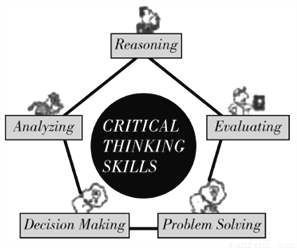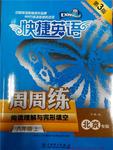题目内容

Critical thinking is the ability to think clearly and rationally about what to believe or what to do. According to a report on the World Economic
Forum (2016), critical thinking, creativity, and their practical application are widely accepted as the top three skills that young people need to possess in their future career.
A good critical thinker usually takes the following steps before he decides what to do. Whenever he needs to do something, he would, first of all, reason. He checks why he needs to do it and whether he really needs to do it. Then, analyze. He tries to find out what it really is and the best way to do it. After that, evaluate. He makes sure whether he is able to do it and how to do it well. Finally, he makes the decision and takes action. Take the “Double 11” (a popular online shopping day in China) as an example. A few days before it, he checks carefully what he needs and whether he really needs them, and makes a shopping list. He goes to the online shops to compare the quality and the prices of the things that he is going to buy. He compares the shops that sell these things. Then he checks whether he can afford them and in which shops he is going to buy them. Although it takes him some time to make the decisions, he would not regret after the shopping.
Then what would happen if he didn’t think critically before he made the decisions? After the crazy “Double 11”, there were usually a lot of complaints on the Internet. There were regrets about buying more things than they needed. There were complaints about the poor quality and the prices of the things they bought. There were also complaints because they received wrong things or simply received nothing. There were all kinds of regrets and complaints. Why so? They had not thought critically before they made the decisions.
Critical thinking helps you make wiser decisions. It helps you avoid wasting time, money and so on. Therefore, do look before you leap.
1.According to the passage, critical thinking is a thinking skill that .
A. helps make better choices
B. will appear in the future
C. helps make quick decisions
D. makes us spend more money
2.In Paragraph 2, how does the critical thinker analyze the things he may buy?
A. He checks what he needs to buy.
B. He studies the quality and the prices.
C. He makes a proper shopping list.
D. He checks how much money he has.
3.The underlined word “complaints” means that the people .
A. are not satisfied
B. are not confident
C. are not interested
D. are not responsible
4.Which of the following examples is the use of “critical thinking”?
A. Daming did a new science experiment before reading instructions.
B. Lingling’s parents became very angry when they knew her bad marks.
C. After looking at the other team’s weak points, the coach made a new plan.
D. After hearing the stranger’s words, the girl followed him into a supermarket.
1.A 2.B 3.A 4.C 【解析】试题本文以“双十一网购”为例,介绍了批判性思维者的特点:理智思考、评估利弊、做出决定。并通过和不认真思考而做的决定进行了对比,指出批判性思维能帮助人们做出更明智的决定。 1.题意:根据文章,批判性思维是一种 的思维技能。考查细节理解题。根据第一句Critical thinking is the ability to think ... 快捷英语周周练系列答案
快捷英语周周练系列答案
